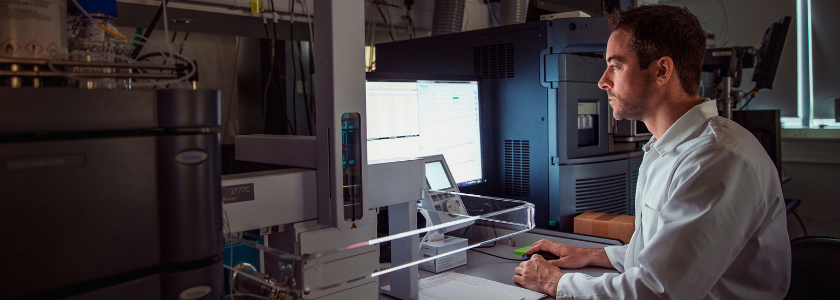Whole-genome bisulfite sequencing helps team identify new epigenetic biomarkers for lethal prostate cancer

Takeaway: New epigenetic biomarkers to predict aggressive prostate cancer have been identified by a team at the Garvan Institute of Medical Research. The ultimate goal? Improving on the promise of personalized medicine.
With the identification and classification of a growing number of DNA biomarkers, which are biological indicators of a disease or outcome, the application of these discoveries in cancer diagnosis, treatment, and prognosis has become increasingly useful. Across the spectrum of cancers, from breast to colorectal, various types of biomarkers help care teams around the globe accurately profile and advance our understanding of underlying cancer disease mechanisms, which is later providing patients with a more personalized treatment plan for their specific situation.
Recently, a team from the Garvan Institute of Medical Research made significant headway in the field of prostate cancer research by uncovering new epigenetic biomarkers to predict aggressive prostate cancer. Their work, published in the journal Clinical and Translational Medicine, added to existing tools, which has possibilities for future applications in the prediction of whether a man will develop metastatic prostate cancer.
Prostate cancer is currently the second-most common cancer diagnosed in men worldwide. In the United States alone, one in every eight men may develop prostate cancer in his lifetime. Additionally, prostate cancer is the second leading cause of cancer death for American men of all races, second only to lung cancer. Globally, prostate cancer is the sixth leading cause of cancer deaths.
Throughout the course of treatment, an estimated 80% of patients undergo radical prostatectomy (RP) surgery, with up to half of these individuals experiencing a biochemical recurrence (BCR), and 5-10% of these cases transforming into a lethal-metastatic prostate cancer. The timeframe for which the disease morphs into its deadliest form usually falls within a 15-year window of initial diagnosis, giving medical teams time to reduce prostate cancer mortality and improve patient outcomes—and making tools for early diagnosis critical to patient survival rates.
Epigenetic Changes in Prostate Cancer
Historically, prostate cancer’s slow rate of progression made it difficult to study the disease’s complete biology. However, over two decades of monitoring samples from 185 men, the team at the Garvan Institute used whole-genome bisulfite sequencing (WGBS) to develop and validate one of the most comprehensive molecular studies of prostate cancer. In total, the team identified 1,420 regions of the genome with unique prostate cancer epigenetic changes. Within these regions, 18 genes underwent additional investigation and one, CACNA2D4, was discovered to be a new biomarker of interest involved in early disruption of key regulatory pathways attributed to prostate metastases and death.
Learn more about how IDT is enabling researchers to advance critical cancer research with xGen™ NGS—made for oncology research.
*RUO—For research use only. Not for use in diagnostic procedures. Unless otherwise agreed to in writing, IDT does not intend for these products to be used in clinical applications and does not warrant their fitness or suitability for any clinical diagnostic use. Purchaser is solely responsible for all decisions regarding the use of these products and any associated regulatory or legal obligations.
